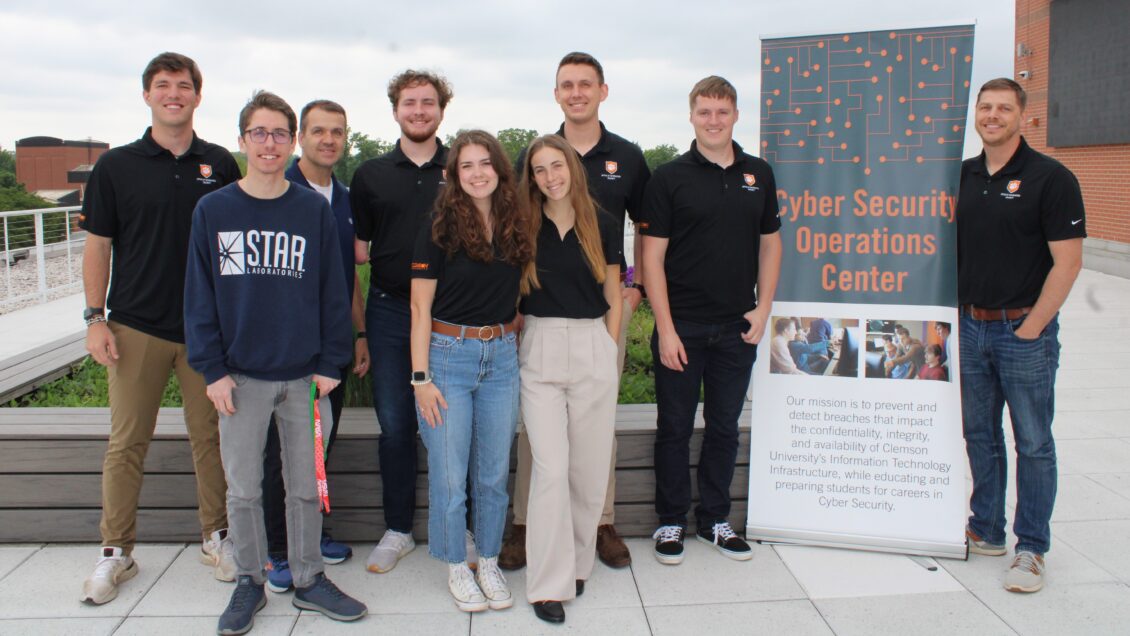Some students find their calling to be doctors, nurses, teachers, or engineers in their early youth. For others, a calling in cybersecurity may happen in middle or high school, guiding them through their collegiate careers at Clemson University. The Cybersecurity Operations Center (CSOC) is the perfect place to foster and explore these interests in a real-world setting, even specializing in specific aspects of cybersecurity before ever hitting the job market. Cybersecurity is a broad, booming field, with job prospects rising at rates of 32 percent between 2022 and 2032, according to the U.S. Labor Bureau. Since its founding in February 2016, the CSOC has seen interns graduate from Clemson and begin their cybersecurity careers across the country. The CSOC offers a collaborative environment for students and connects students with peers who are also involved in technology clubs and organizations like CU Hackit, the Cybersecurity Club, and the Cybersecurity Competition Team.
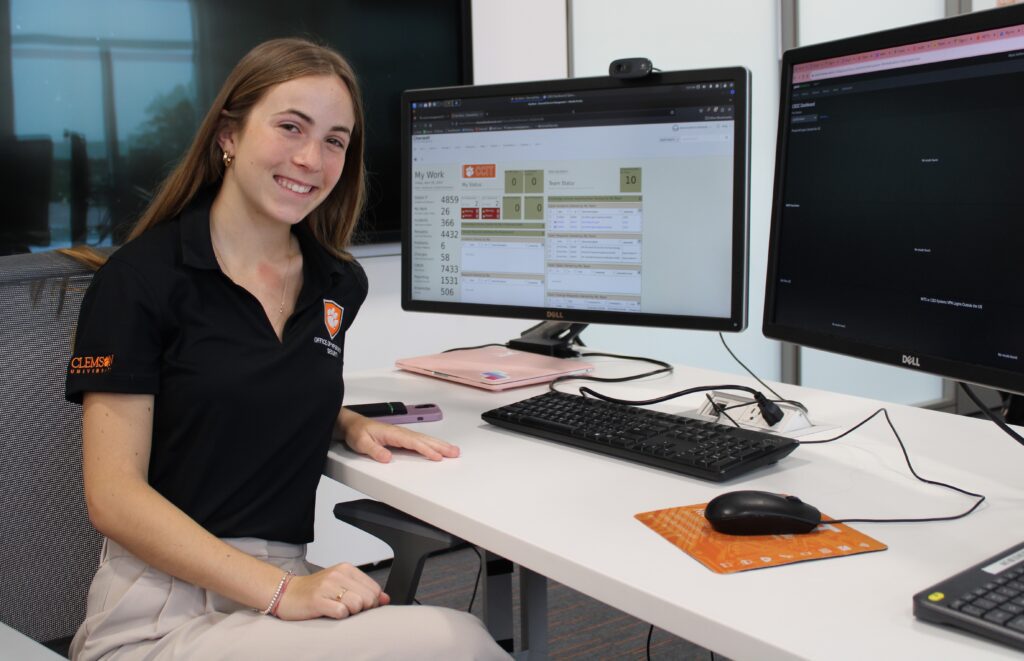
“I got interested in cybersecurity in high school and got involved with CU Hackit at Clemson. The current director, Nathan Brown, worked at the CSOC and he recommended it to me,” said Malia Fairbanks, sophomore computer information systems major. “I always wanted to learn more, and do hands-on work since a lot of entry-level roles require 3-5 years of experience. You get the chance to do that here.”
Interns apply to work at the CSOC and are selected through a program called University Professional Internships or Co-op program (UPIC). Clemson’s UPIC program facilitates internships across campus within various business areas, allowing enrolled students to make real contributions and gain professional experiences and connections without leaving Clemson. The CSOC’s opportunities are part of CCIT’s intern portfolio in the Office of Information Security.
Fairbanks said word of mouth played a big role in her application to the CSOC via UPIC. She applied during the second semester of her first year and plans to continue throughout her Clemson education. She even added a minor in cybersecurity.
Duncan Hogg, junior computer science major, said it was at Tiger Prowl, Clemson’s student organization fair, where he saw a booth for Cybersecurity Club. He became interested in the topic area in middle school and by high school had explored it more.
“I went to all the Cybersecurity Club meetings, started picking up a lot of things, started straight into the coding stuff and stuck around.” Hogg said. “Then there were sign-ups for the Cybersecurity team, I met [Chief Information Security Officer] John Hoyt and [CSOC Manager] Calvin Watts, and John said I’d be a great fit for the CSOC.”
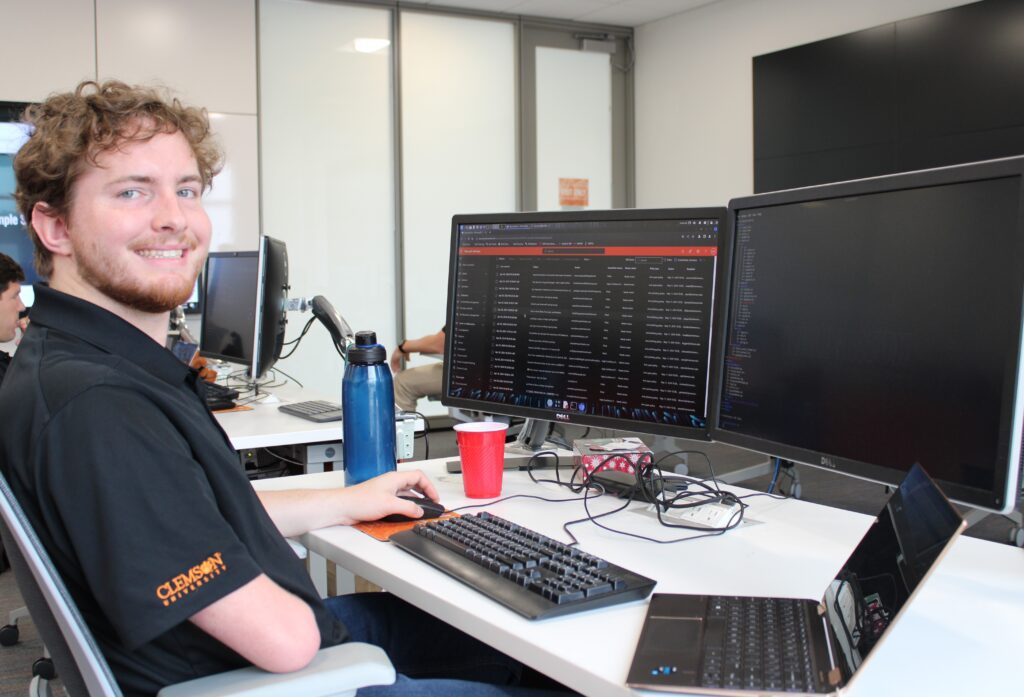
Duncan applied and plans to continue working in the CSOC through his graduation, pursuing a career in the field afterward.
Watts takes the development of all the CSOC interns very seriously and provides a strong commitment to their success. He has a keen understanding of the work too—before he was hired full-time in May 2022, he worked as an intern for a few months and experienced how he could make improvements in the future.
“Being in the military previously, I entered my role at the CSOC and knew we needed to develop more rigorous training programs and structures for promotion,” Watts said.
Leveraging his background, Watts has since created levels that students can achieve over the duration of their time as interns. In just two years as the CSOC manager, Watts said he has seen great success placing students into cybersecurity careers.
“Over the last two years, I’ve seen six interns graduate, and all six of them have landed six-figure jobs in the field right out of college,” Watts said. “It has been so rewarding to see the interns grow. Duncan Hogg is the first student I’ve worked with through his whole career so far and it is amazing to see the maturity.”
Levi Leard, junior computer science and economics major, said the environment in the CSOC that Calvin has created and the people he interacts with make his experiences as an intern special.
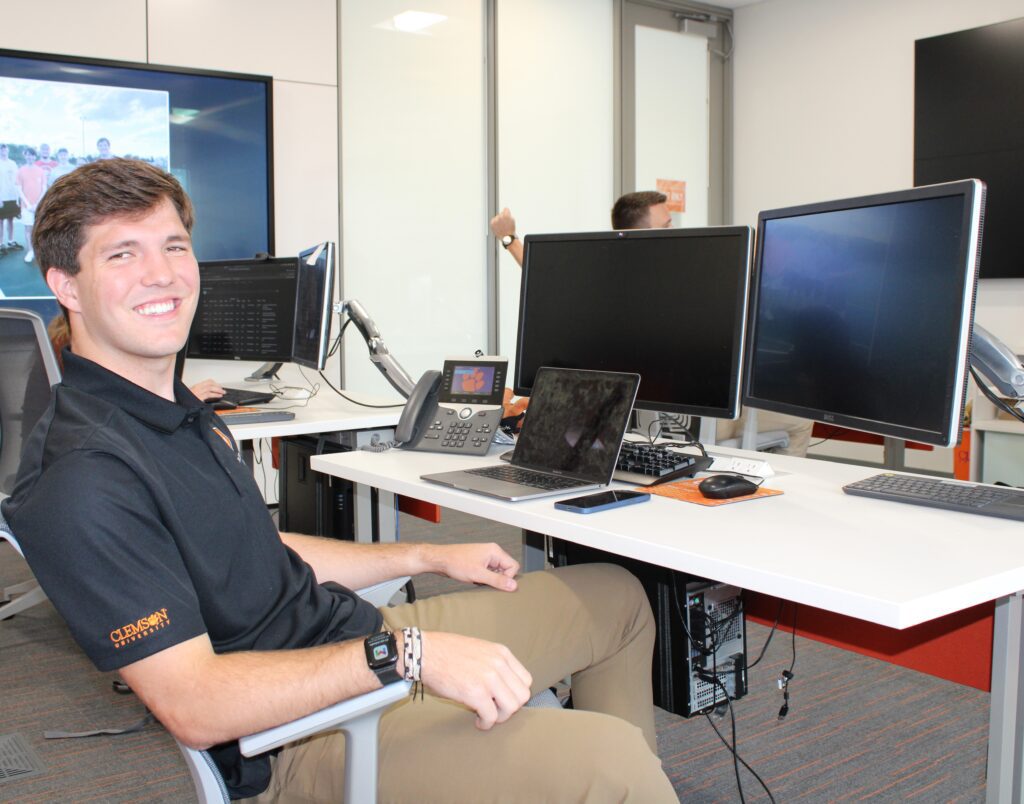
“Calvin does really well with development and making sure we can continue growing regardless of our level,” said Leard. “People are number one, always great to work alongside and to learn from with our different backgrounds. I also learn from those who have been working at the CSOC for a while now so I can grow.”
John Hoyt, chief information security officer (CISO), said the evolution and development of the CSOC is a trendsetter in the collegiate cybersecurity space. In fact, he said Clemson is one of the first universities to do something like this at this scale and experience level, and it is something he is proud to be a part of.
“In my opinion, the CSOC is one of the best things that I have had the opportunity to do. I could immediately see a difference from when it was normally me doing investigations to students now,” Hoyt said. “Because of the CSOC we have more firepower, more humanware for real incidents, and this is a force multiplier for immediate impact. Our students tackle problems efficiently. As they become more proficient, they add even more value through areas like research and investigations.”
As students matriculate through their rounds of UPIC internships in the CSOC and rise in rank, retaining talent at Clemson is another thing Hoyt said he is passionate about. One example is Daniel Harold, the current endpoint security employee in CCIT.
“I want to keep interns and retain the talent we grow. Daniel was Steve Higareda’s intern when Steve was the CSOC manager. Steve was my first intern in 2014 before the formalized CSOC, and Steve is now our deputy CISO,” Hoyt said. “Our interns are working in such real positions we want to keep them full-time when we can.”
Harold said that while his current role at Clemson does not interface as regularly with the CSOC, he still gets involved with the students as much as possible.
“I definitely have a soft spot for the CSOC,” said Harold. “There is such a shortage of qualified people in cybersecurity positions, our interns are highly intelligent, and the CSOC does an excellent job growing their talent.”
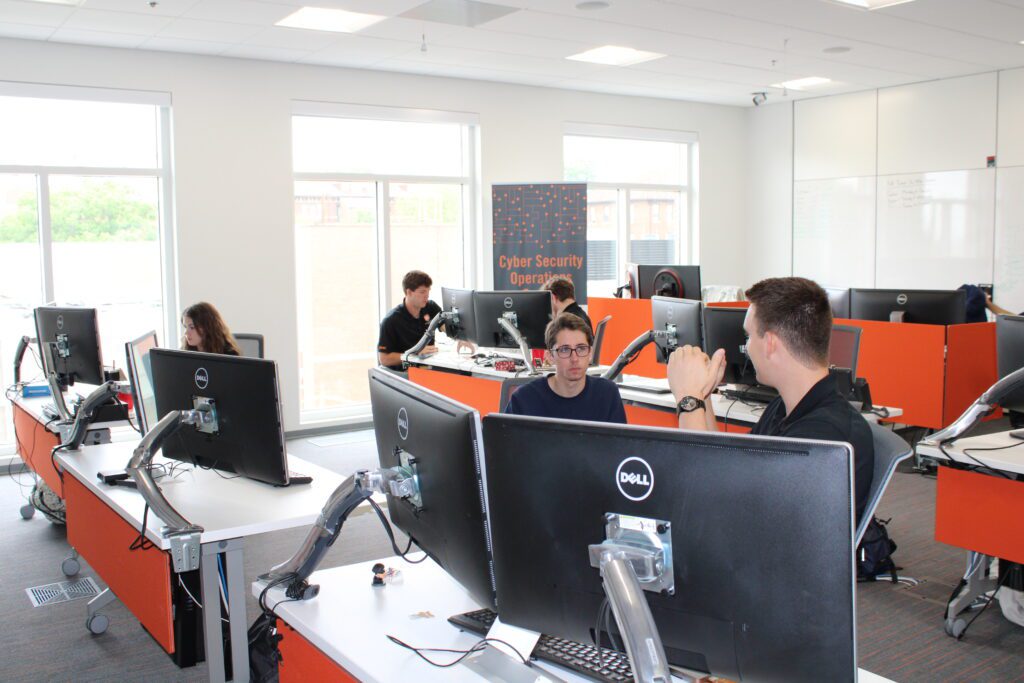
The CSOC is located in the Watt Family Innovation Center and functions as a space allowing students to collaborate. Laura Morgan, junior computer information systems major and cybersecurity minor, said the people make the CSOC so impactful on her Clemson career.
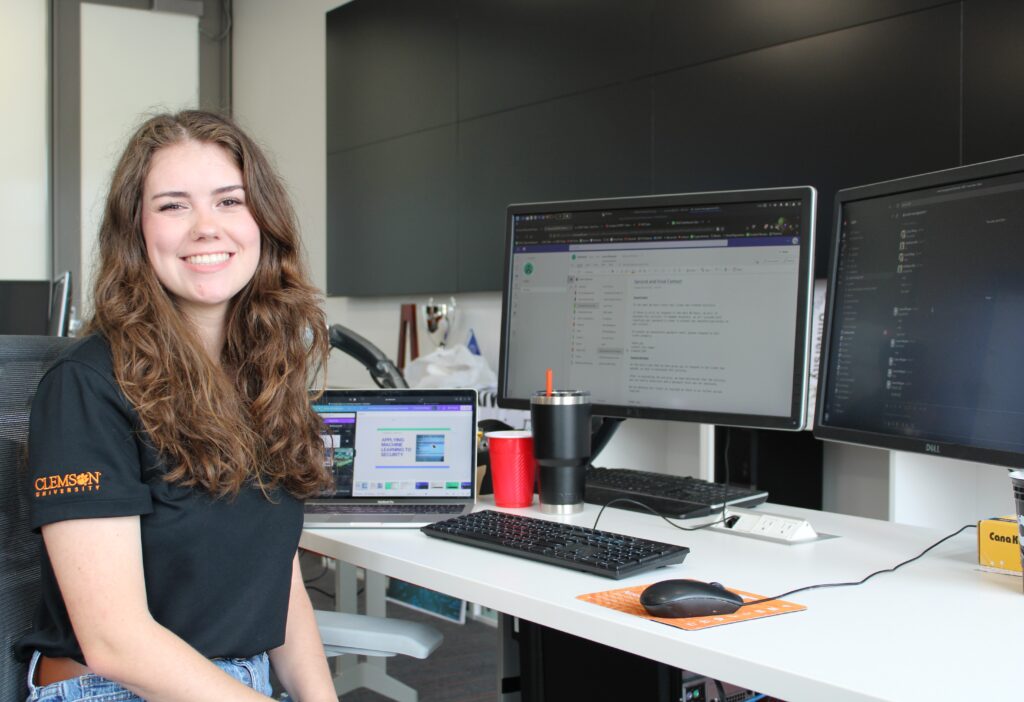
“My CSOC internship reaffirms that I am doing the right thing and I enjoy going to campus each day because I get to come here,” Morgan said. “I enjoy chatting with the other interns in other classes we take too and that I get to continue this work after college.”
Ultimately, Hoyt said the CSOC model developed by the passion and care of people like Calvin Watts puts Clemson in a position to help other universities benefit from their experiences. Hoyt says he has had conversations with Georgia Tech, given talks on lessons learned and why universities should implement this model, and is currently helping Spartanburg Community College build something similar.
In the end, the results make this simple for Hoyt: “It is effective, and it works. We are living proof.”
Get in touch and we will connect you with the author or another expert.
Or email us at news@clemson.edu

